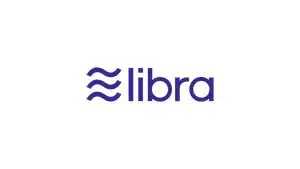A report Wednesday that at least some members of the consortium backing Facebook Inc.’s Libra cryptocurrency project—including Visa Inc. and Mastercard Inc.—are having second thoughts has drawn fire from the top Facebook executive in charge of the project.
“The tone of some of this reporting suggests angst, etc….I can tell you that we are very calmly and confidently working through the legitimate concerns that Libra has raised by bringing conversations about the value of digital currencies to the forefront,” said David Marcus, head of Calibra at Facebook, in a tweet late Tuesday. Marcus was responding to a Wall Street Journal story that posted online Tuesday afternoon and ran in the paper Wednesday.

Calibra is Facebook’s digital wallet for Libra, a so-called stablecoin tethered to a basket of short-term government securities. Facebook’s plan calls for launching the coin next year.
The Journal story reports that Mastercard, Visa, and “other” backers are wavering in their support in the face of withering criticism of Libra from lawmakers and central bankers in the United States and abroad. It adds that so far none of the 27 companies, which together with Facebook make up the Geneva, Switzerland-based Libra Association, have handed over the $10 million commitment requested of each backer.
Of the 27, five are payments companies, including PayPal Holdings Inc., PayU, and Stripe Inc. A Mastercard spokesperson told Digital Transactions News the company has no comment on the matter. A Visa spokesperson said the network has nothing “to share beyond what we’ve already stated publicly.” Visa chief executive Al Kelly confirmed in an earnings call in July the company had not yet made a binding commitment to Libra, though he added, “We actually believe we could be additive and helpful in the association.”
PayPal, PayU, and Stripe did not immediately respond to requests for comment.
In his four-part tweet, Marcus also responded strongly to a section of the Journal article reporting that Facebook has not been forthcoming with the backers about how Libra will prevent illicit activities such as money laundering and terrorist financing. The article cites as a source “people familiar with the matter.”
“The part of the article suggesting we weren’t on top of or didn’t share detailed information about how to secure Libra and protect the network against illegal activity is categorically untrue. (Worth calling BS),” says Marcus’s tweet.
Observers speculate Visa and Mastercard may be backing away in the face of the negative reaction Libra has evoked from lawmakers and regulators concerned about how the digital currency will work and its potential impact on existing monetary systems. “It doesn’t surprise me Mastercard and Visa are reconsidering their options. Any big decision has risk, including reputational risks,” says Krista Tedder, head of payments at Javelin Strategy & Research, a Pleasanton, Calif.-based financial-services consultancy.
Others, who argue the two payments giants may have joined Libra to keep tabs on a potential competing network, say that calculation may now be undergoing a change. “The two dominant traditional retail-payment networks may be starting to think that there’s more downside than upside in being associated with Libra,” says Eric Grover, principal at Intrepid Ventures, a Minden, Nev.-based payments consultancy.
Still, Marcus in his long tweet expresses confidence that the backers will stick it out. “Change of this magnitude is hard and requires courage,” the tweet reads. “It will be a long journey…while I have no knowledge of specific organizations’ plans to not step up, commitment to the mission is more important than anything else.”






